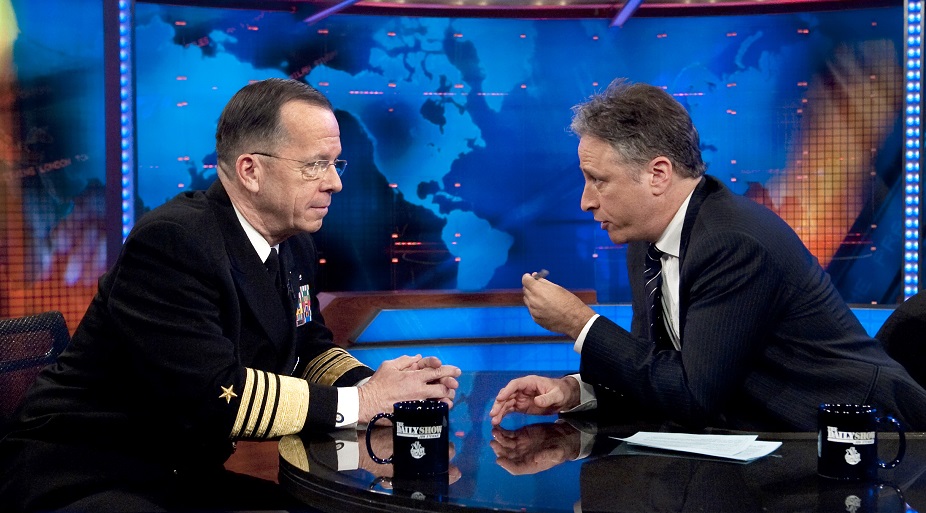Opinion: A late night comedy nap
When I was in middle school, Jon Stewart’s “The Daily Show” introduced me to political comedy and it used to blow out my sides in laughter. His deadpan style and jabs at then President Bush over his goofy demeanor and nonsensical sayings were easy humor to my family and me, and we watched him for a good number of years.
Remembering this makes me nostalgic not because it’s a pleasant memory, but because I want to like Stewart as I did then.
Stewart along with Stephen Colbert, Trevor Noah, Jimmy Kimmel, Seth Meyers, Bill Maher, John Oliver, Jimmy Fallon, Samantha Bee and Chelsea Handler make up the major players of evening shows and late-night comedy. Their comedic methods are different, ranging from self-deprecating to deadpan to insults to mere observations. They also have a noted ability to talk about current events and politics that are interesting to the American public. They all have one thing glaringly common, though: each do some form of political comedy.
Their remarks or stances on political issues are consistent in tone, content and focus — and their skew is predominantly, if not entirely, liberal.
This has always been an interesting observation to me — even in middle school, when my political literacy didn’t really extend beyond “The Daily Show” and “The Colbert Report.”
Albeit funny then, their similar remarks on similar issues — and their habit of using ad-hominem arguments against guest stars whom they disagreed with — got old fast, and over time ruined their appeal to me. “Oh, those silly conservatives/tea partyers/libertarians, how quaint and stupid” became aged, and as I got older, the humor did too. It reached a point of oversaturation that made me step back and think If I as a liberal person find myself disenchanted and disinterested in the same politically nuanced jokes over and over again, imagine how anyone but liberals feel.
Worse yet, this over-saturation of satirical and over-sarcastic mouthpieces have helped drive Americans further away from each other. Caitlin Flanagan of the Atlantic stated it perfectly in her article, “How Late-Night Comedy Fueled the Rise of Trump.” She argues that the constant condescending tone of comedians making shallow humor over President Trump — and even more so his supporters — made many Americans feel alienated by late-night comedy. Flanagan states, “When John Oliver told viewers that if they opposed abortion they had to change the channel until the last minute of the program, when they would be shown ‘an adorable bucket of sloths,’ he perfectly encapsulated the tone of these shows: one imbued with the conviction that they and their fans are intellectually and morally superior to those who espouse any of the beliefs of the political right.”
I don’t mind liberals in comedy at all. I find them to be very funny, and represent a wide array in comedy styles as well as life experiences to reflect on. I find our current political situation humorous as well, and people like Trump certainly deserve to be made fun of. These are some things that anyone anywhere on the political spectrum understand and agree on.
But these traits are not solely the intellectual property of liberal comedians; their over-representation has led in part to a larger divide between political tribes. The conservative base in our country doesn’t need a propaganda arm — all they have to do is point out these shows or comedians in question and say “look at how those bourgeois, cosmopolitan comedians attack your values and way of life. Look at how millions of people’s perspectives hinge on their words and accept their commentary without consideration for you.” That alone was part of the social and cultural shift that brought us a Trump presidency.
There’s nothing wrong with making fun of conservatives or politicians you don’t agree with, or who say perfectly stupid things on a regular basis. However, considering their large representation, prime-time comedians should understand what effect their comedy has when it lampoons others constantly and doesn’t allow for a rebuttal or alternate humor. Comedians on prime-time should place themselves in another’s shoes, to understand how their humor can alienate others and find something we can all laugh at together in the end.






